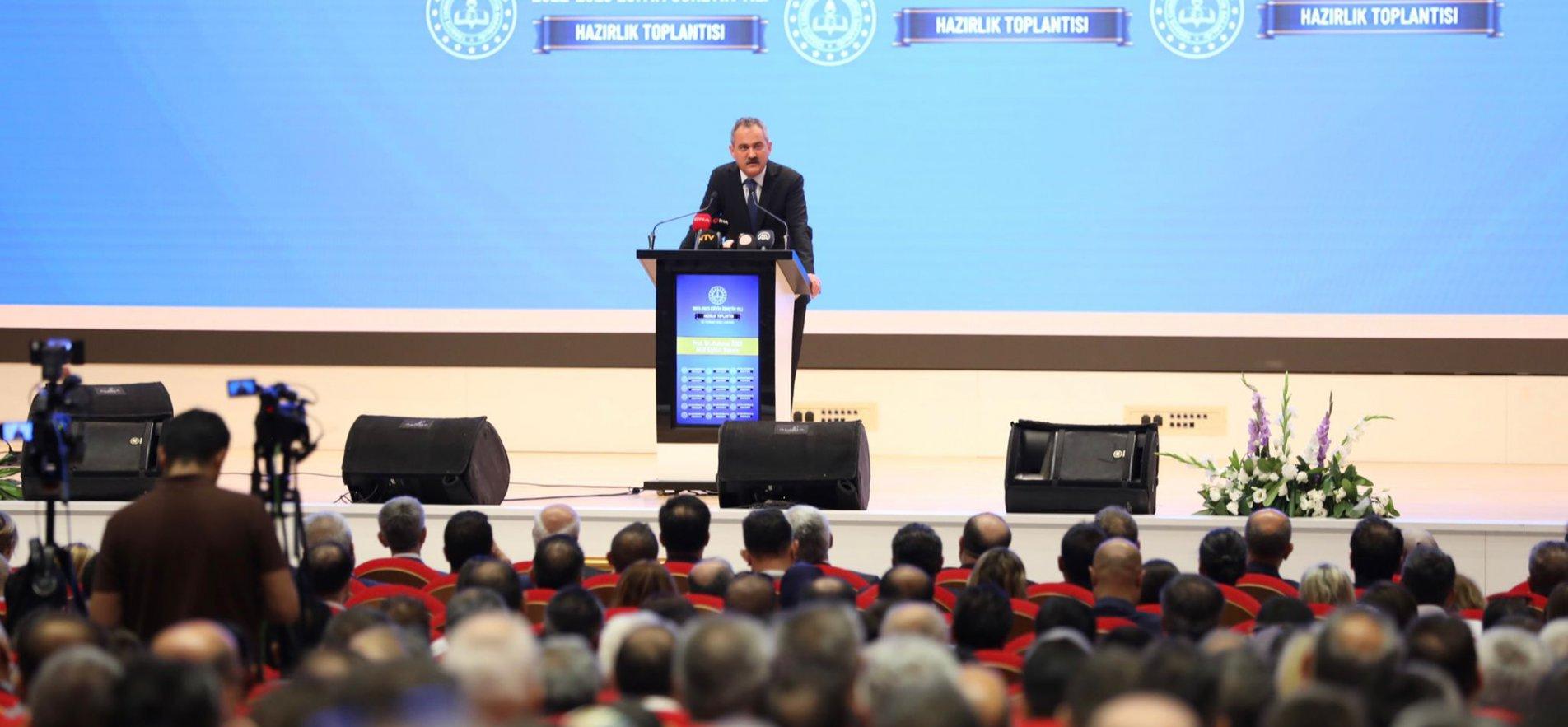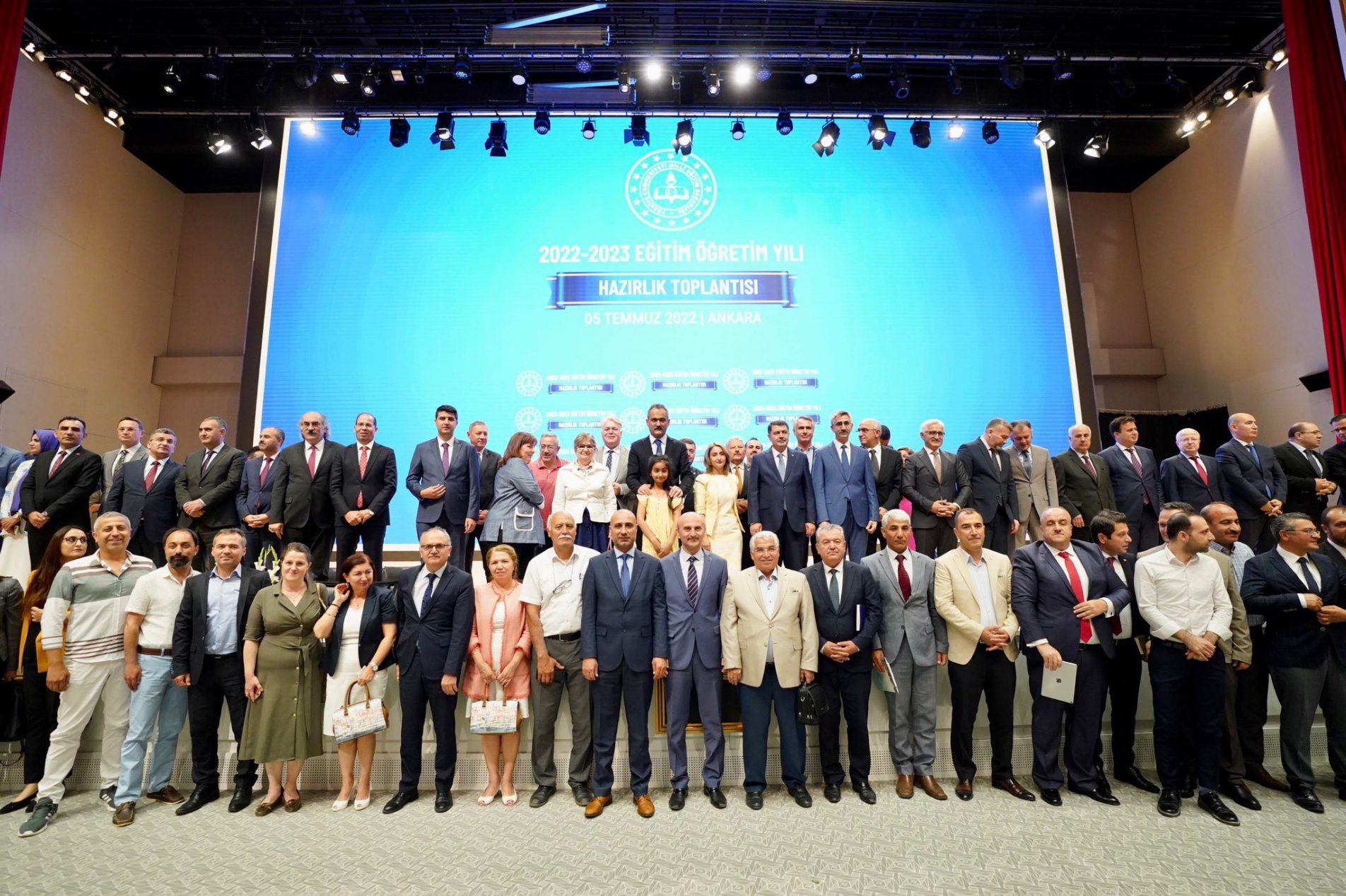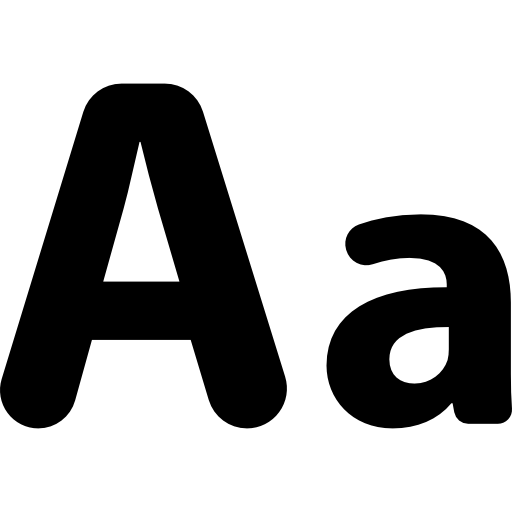Following the end of the 2021-2022 school year, the Ministry of National Education started preparations for the upcoming school year.
Minister of National Education Mahmut Özer had his first meeting with school administrators in İstanbul and his second meeting was in Ankara as a part of the 2022-2023 school year preparations.
Özer stressed that he started preparation meetings only a week after the end of the 2021-2022 school year and education investments made in Ankara reached 6 billion liras.
"As of today, we allocated 700 million liras to all schools in Ankara for cleaning materials, stationary, minor repairs and other requirements needed for the 2022-2023 school year. As long as we use resources fairly and productively, we can solve all problems in the education system. We must be honest and transparent," stressed Özer.
Addressing school administrators, Minister Özer said that he will give all kinds of support to them for the improvements required to maintain a better education environment at schools.
He noted that the budget allocated for new school year preparations will not be limited with 700 million liras and the Ministry will coordinate budget allocations according to the needs of provincial directorates of national education.
"There is no relation between donations and school registration"
Minister Özer donations collected during the school registration is not common in education despite some exceptions and state responds to the needs of schools.
"The Ministry of National Education allocates the required budget and responds to all needs of schools. There is no relation between donations and school registration but parents can make donations any time. But all people living in the Republic of Türkiye can make registrations to state schools without paying any additional fee," stated Özer.
Minister Özer expressed his happiness to continue face-to-face education without any interruption during the 2021-2022 school year and his gratitude to teachers and administrators for their sacrifices.
He noted that education was the priority of the country for the last 20 years under the leadership of President Cumhurbaşkanı Recep Tayyip Erdoğan and the largest part of the budget was allocated to education.
Özer went on to say that the schooling rate among 5 year old children which was 11 percent in the 2000s reached 93 percent today and schooling rate in secondary education which was 44 percent exceeded 90 percent adding that socioeconomically disadvantaged children and female students benefited most from the improvements in the education.
"In the last 19 years, the number of classrooms increased from 300,000 to 850,000 and for the first time in the history of the Republic, the number of female students exceeded the number of male students," he said.
Özer reminded that barriers in education such as headscarf issue and coefficient practices prevented accession to education in the past and sentenced vocational schools and religious schools to be unsuccessful.
"With the support of President Recep Tayyip Erdoğan in the last 20 years, we are giving quality of education to our children and we will continue to initiate projects about cultural literacy. Despite some claims, we know from scientific data that massification in education is not the enemy of quality. Türkiye made two important achievements during this period. Firstly, we increased the number of children enrolled in informal education and secondly Türkiye ranked among rare countries which achieved to increase the students success in international student surveys. In the 2000s, there were nearly 500 thousand teachers in the education system, now there are 1,2 million teachers. In other words, 75 percent of existing teachers were appointed in the last 19 years. We implemented positive discrimination against women. 60 percent of 1,2 million teachers in the education system are women. Despite the growth in the number of students, the teacher per student figure dropped under 20," stated Özer.
Özer stressed that growth in the education system in Türkiye is based on success and international PISA and TIMMS surveys reveal that clearly.
Preschool education
Noting that preschool education is among the prior concerns of his Ministry, Özer reminded that they have decided to inaugurate 3,000 new kindergartens and 40 thousand new preschool classrooms under the auspices of President Recep Tayyip Erdoğan's spouse Emine Erdoğan.
"Every year, the number of newly opened independent kindergartens was changing between 40 and 50 in Türkiye. We have inaugurated 750 independent kindergartens within 7 months and approximately 9,000 preschool classrooms. Schooling rate among 5 year old children which was 78 percent on August 6, 2021 recently reached 93 percent. After we dropped the student quota required to open preschool classrooms in village schools from 10 to 5, 12,000 students enrolled in these classes in villages," said Özer.
He also noted that accession to preschool education in Ankara was 42 percent when he was appointed as the Minister of Education on August 6, 2021 and majority of students were enrolled in private kindergartens. Özer stated that the most important priority of a social state is to provide accession to education for everyone regardless of their income level.
"Our goal is to increase the schooling rate among 3 year old children from 14 percent to 50 percent, schooling rate among 4 year old children from 35 percent to 70 percent and schooling rate among 5 year old children to 100 percent until the end of 2022," said Özer.
"Our concern in vocational education is not completing with the market"
Minister Özer stated that another prior goal of his Ministry is to reinforce vocational education, reminding that academically successful students started to prefer to study in vocational education institutions.
Stressing that there has been an important increase in the production capacity of vocational schools, Özer went on to say that, "Our concern in vocational education is giving quality of education not competing with the market. Our concern is to produce bread in the gastronomy departments of vocational schools. Within this framework, we have decided to found approximately 100 workshops in these schools."
Özer announced that the Ministry has allocated 200 million liras for the reinforcement of production facilities in the vocational schools and added that vocational schools earned 1 billion and 162 million from their production capacity in 2021.
As President Erdoğan announced earlier, the goal is to increase the income of vocational high schools to 1,5 billion liras until the end of 2022. Özer said that the production capacity of vocational schools increased by 231 percent in the first five months of this year when compared to the same period of last year and reached 560 million liras.
Özer noted that an amendment in the Vocational Education Law No. 3308 turned vocational schools into an attractive mechanism for both employers and students.
Number of foremen and apprentices enrolled in the vocational education system reached 553 thousand and as President Erdoğan announced earlier, the Ministry aims at enrolling 1 million students in the vocational education institutions.
Özer reminded that the Ministry has signed cooperation agreements with the Municipalities of Bursa, Gaziantep Şahinbey and Konya for scholarship programs for vocational school students.
Özer also mentioned the "No More Schools Without Libraries" project supported by Emine Erdoğan and his Ministry founded 16,361 libraries within two months.
Other priority of the Ministry is the professional development of teachers and school administrators, said Özer and added:
"A society is as strong as its teachers. We will give all kinds of support to the professional and personal development and leadership training programs of teachers. Our first step was the Teaching Profession Law which came into effect on February 14, 2022. The new law defines teaching as a career profession and motivates teachers for lifelong learning."
Minister Özer changed their approach to professional development programs for teachers and initiated school based professional development training programs according to the different needs of different schools.
The Ministry allocated 292 million for the school based professional development programs.
Addressing teachers and school administrators, Özer said, "training program hour per teacher was approximately 44 hours, this rate varied between 44 and 40 hours in the last decade. After August 2021, this figure reached 94 hours. As of June, the Ministry gave 5,5 million certificates to teachers. Our goal is to give at least 120 hours training to each teacher until the end of 2022. I believe that we can reach 150 hours with your contributions."






























